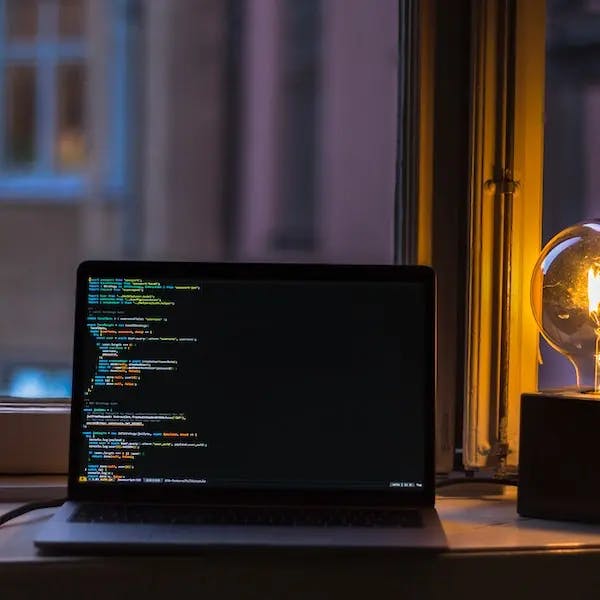Why am I more productive at night?
Updated on Oct 21, 2023
•By Ewa Nikodem
Some people are more productive at night. This can be due to their internal clock, fewer distractions, and melatonin enhancing cognition.

Hey, night owls! Do you ever find your productivity peaks after the sun goes down? I know I have. It's like a switch flips and suddenly that to-do list you’ve been avoiding all day becomes an easy checklist. Then you start to wonder “Why am I more productive at night, what's the deal with that?” Is it mysterious forces or just your mind saying "Get stuff done, but do it when it's dark out"?
Don't worry, I won't be throwing around scientific terms without a proper explanation. I will unravel some science behind the nocturnal effectiveness. and getting stuff done when the world is asleep. Before you think "Oh no, a boring science lecture," let me assure you - this stuff is fascinating and explains a lot about our after-hours productivity.
Grab your favorite late-night snack, get cozy, and let’s dive into the science and benefits of nighttime productivity.
- The body's rhytm
- Reduced distractions
- Melatonin's role in nighttime focus
- Practical tips
- Challenges
- Conclusion
The body's rhytm
Imagine your body is a finely tuned instrument, playing different tunes at different times. There’s a natural rhythm happening inside you every day. It's like your body has its own DJ, spinning tunes throughout the day, called the circadian rhythm.
Your body has its own schedule it follows every 24 hours. It’s not a strict calendar, but more like your body saying: "Hey, it's morning — you should start moving!" and later, "Okay, night's here, time to relax or sleep". It's this internal clock that tells your brain what to do and when to do it.
For some people, this internal DJ turns up the volume when night time comes around. Night owls’ biological clocks might be tuned to reach peak alertness and productivity during nighttime hours.
Reduced distractions
Another influencing factor is the much quieter atmosphere at night. You won’t be getting emails or calls at 2 AM, and notifications slow down. With fewer distractions, you can immerse yourself in deep work without constant interruptions.
It's not about the ambience of the night - it’s the practical benefit of an environment free from disruptions. This allows efficient, focused work.
Melatonin's role in nighttime focus
Melatonin, often called “the sleep hormone”, plays a crucial role in regulating our sleep-wake cycle. Its production increases as the night progresses, signalling to the body that it's time to sleep.
Melatonin doesn't induce sleep for everyone. For some, it acts as a cognitive enhancer. This melatonin boost during evening hours may explain the sharp mental focus of night owls.
Practical tips
Now that we understand why nights can be so productive, here are some tips for making the most of those hours:
-
Temperature: Optimize your workspace for a cooler temperature during the night. Warmer temperatures can make you sleepy. Consider adjusting air conditioning or using a fan to create a better environment for focused work.
-
Circadian rhythm alignment: If possible, align your work schedule with your natural circadian rhythm. Leverage your peak alertness during the night for tasks that require intense focus.
-
Mindful melatonin production: Be mindful of factors that impact melatonin levels, such as exposure to blue light from screens. Consider using blue light filters in the evening to avoid disrupting your natural melatonin production.
-
Strategic breaks: Embrace the natural flow of cognitive performance. Take strategic breaks during your nighttime work sessions to refresh your mind and avoid burnout. The Pomodoro technique is a great hack to stay productive, while also allowing for breaks.
-
Create the right atmosphere: Just as the optimal study environment plays a role in focused work or studying, creating the right atmosphere is essential for nocturnal productivity. Dim and warm lighting, a comfortable chair, and perhaps a favourite playlist can help you get in the zone.
-
Set clear intentions: Before diving into nighttime work, set clear intentions for what you want to accomplish. Having a roadmap or to-do list for your tasks helps maintain focus during the quieter hours.
Challenges
However, nocturnal work does pose some risks:
-
Sleep disruption: One of the most significant challenges is the potential disruption of your natural sleep-wake cycle. Nighttime work can lead to irregular sleep patterns, making it challenging to get enough quality rest during the day. Finding the right balance between work and sleep is crucial. Ensure you're getting adequate rest during the day so that your nighttime productivity doesn't compromise your overall well-being.
-
Social isolation: Working while most people sleep can lead to social isolation. You might miss out on social events, family time, and face challenges in maintaining a work-life balance. Firstly, maybe try to communicate your preferred work hours to friends and family, establishing boundaries that respect your nocturnal productivity and their rest.
-
Reduced natural light exposure: Working at night means you miss out on natural light, which can affect your mood and health. It may lead to a deficiency in vitamin D and contribute to a feeling of being disconnected from the outside world. If you are a night owl, consider supplementing your vitamin D intake.
-
Health concerns: Irregular work hours, especially at night, have been linked to various health concerns. These include an increased risk of obesity, cardiovascular problems, and mental health issues.
Conclusion
The science behind optimized nighttime productivity is based firmly in biology and environment. It becomes clear that the night holds its own allure for efficiency. The quiet environment, reduced distractions and a break from social obligations all contribute to a focused environment.
As we come to the end, one thing remains certain: productivity isn't confined to the sunlit hours. The night, with its unique blend of calm and melatonin-induced clarity, offers a canvas for focused work. So, if you find yourself working when the world sleeps, embrace it, as it might just be the key to unlocking your most productive self.


